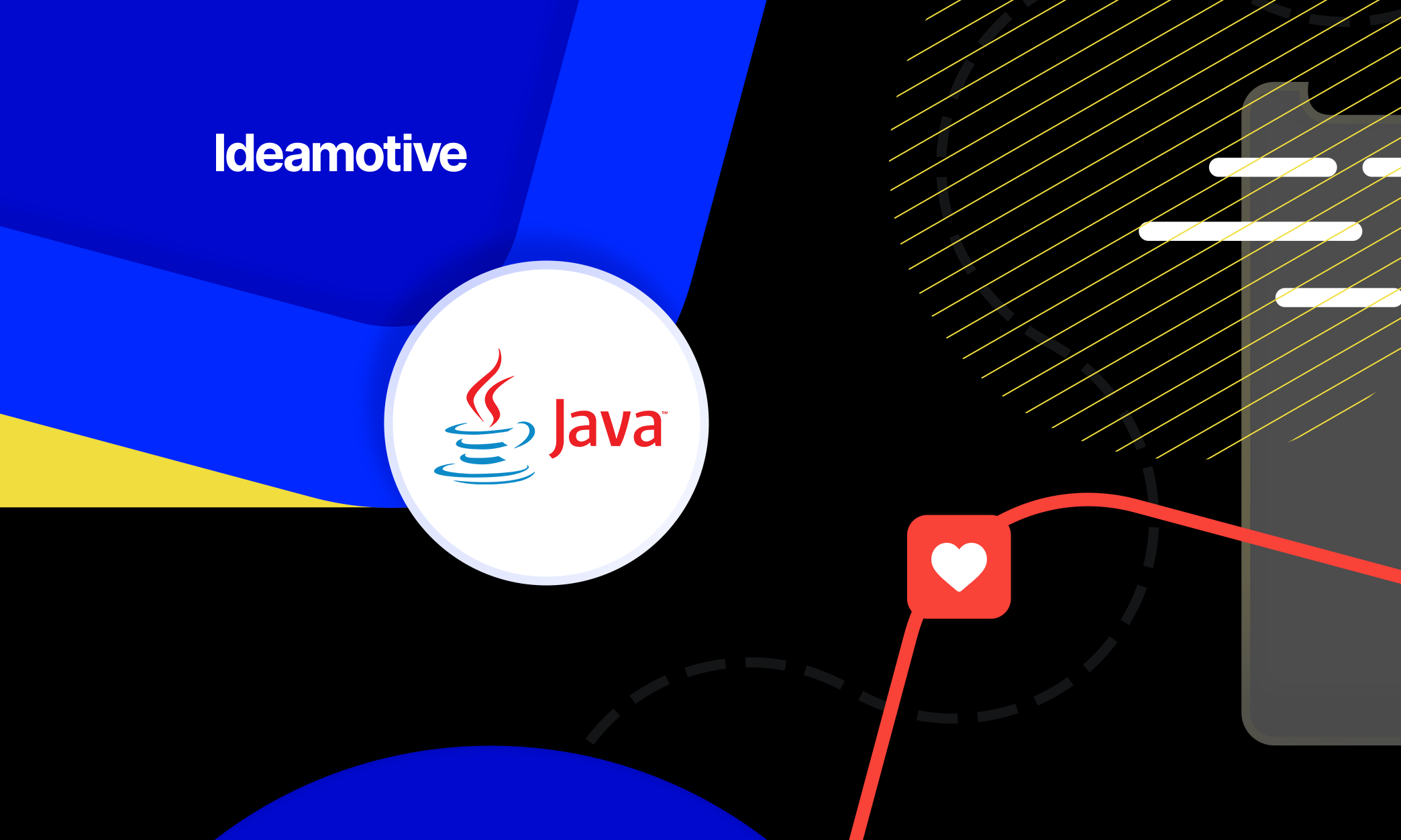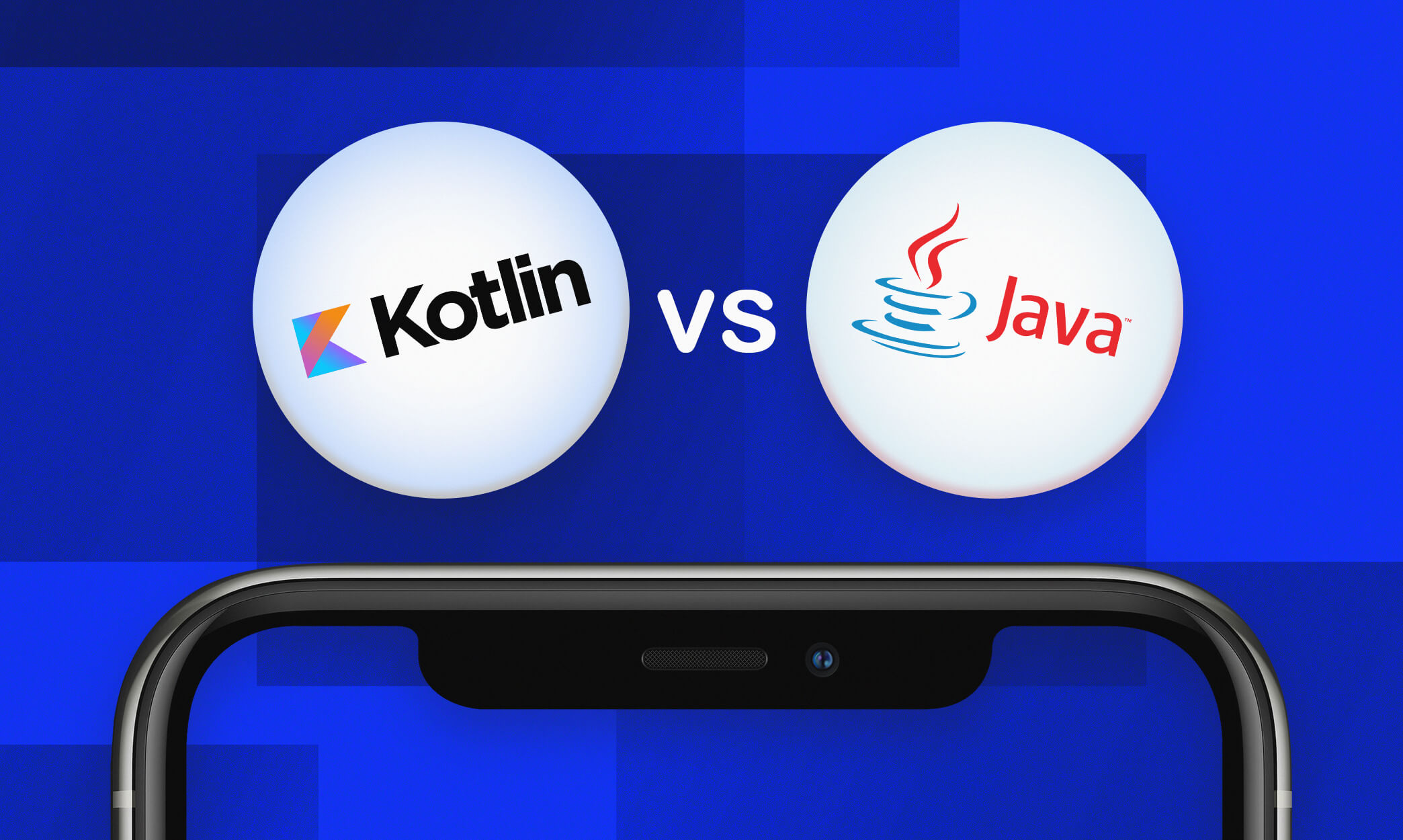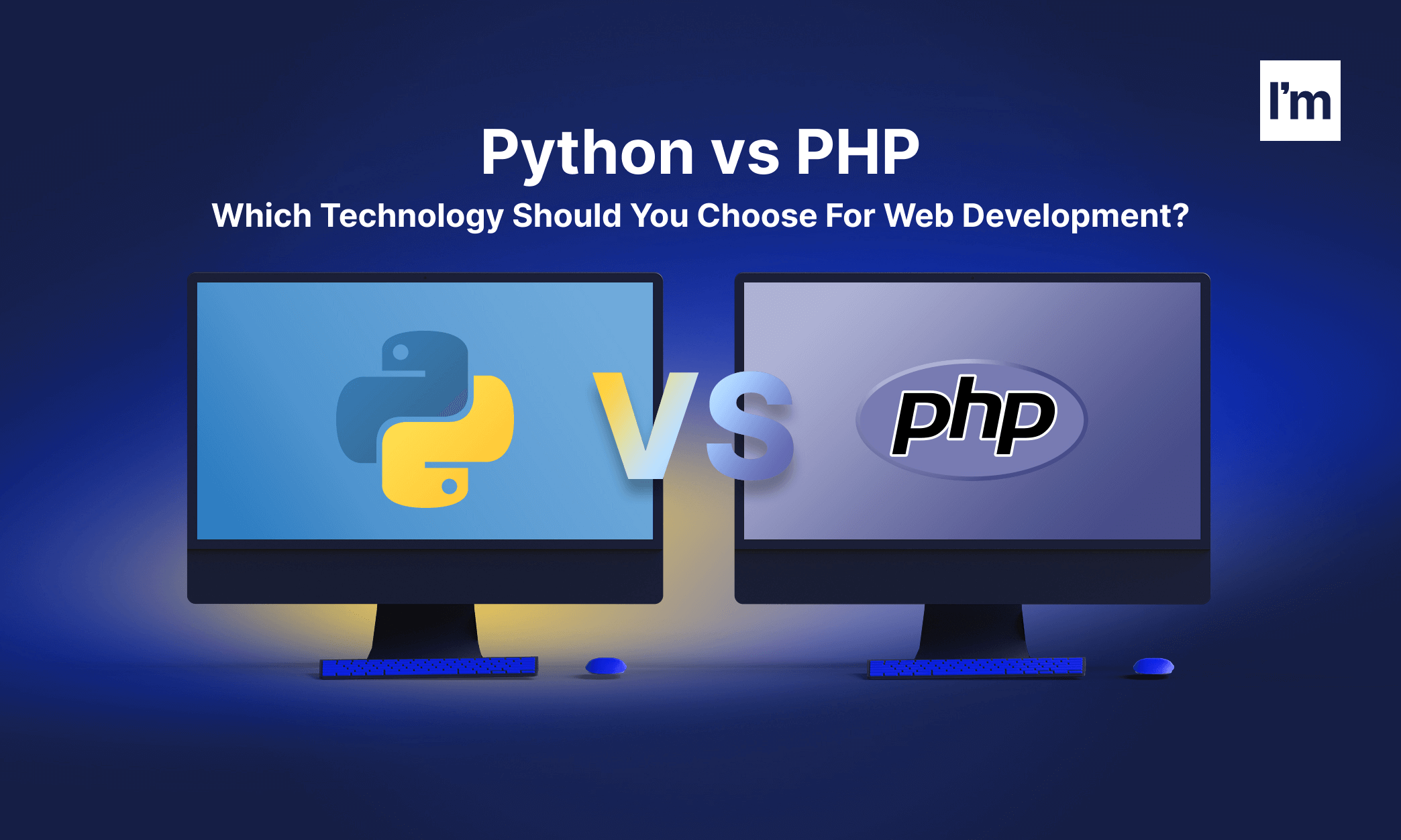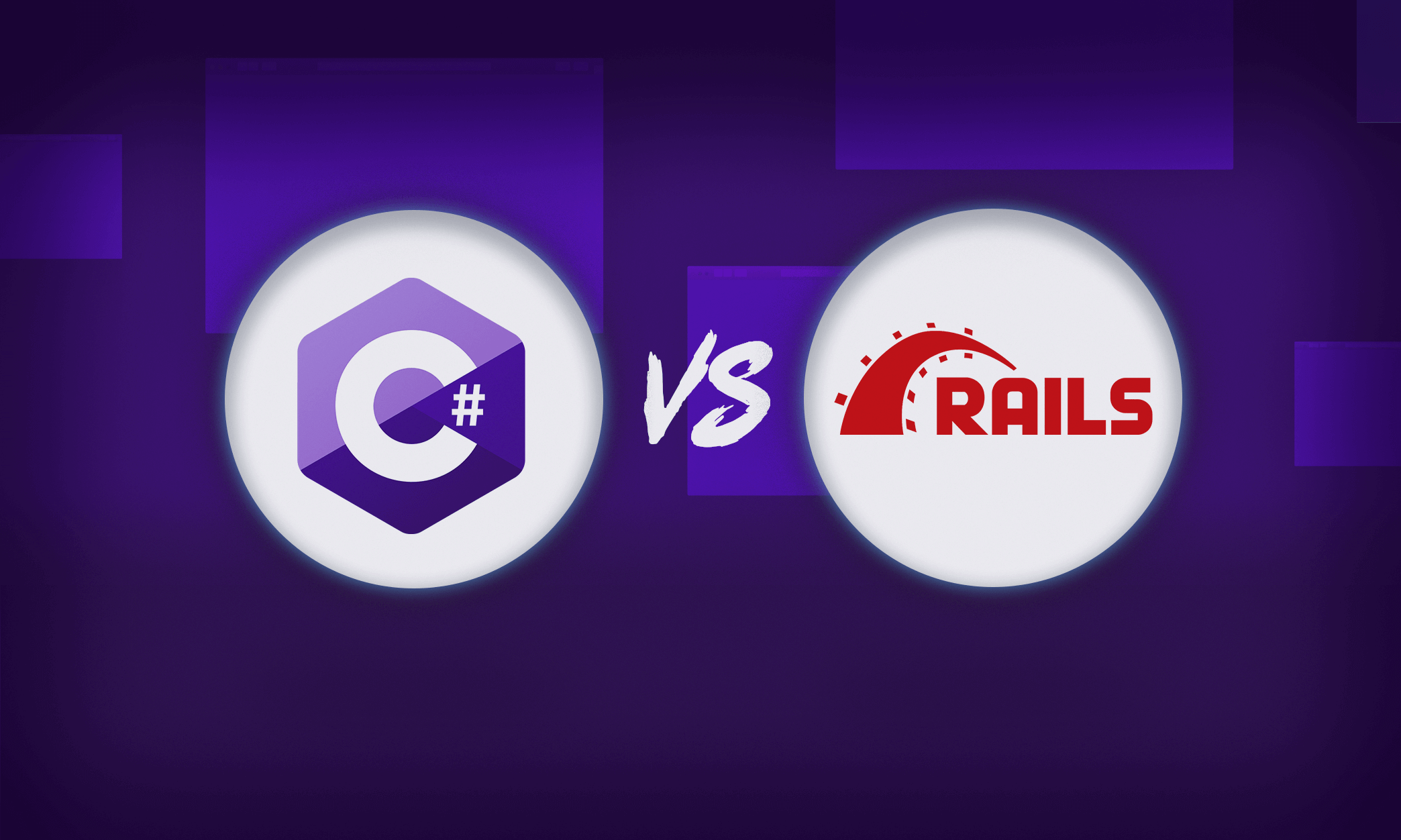Go vs Java: Similarities, Differences, and Business Applications
Apr 6, 202111 min read

Miłosz Kaczorowski
Co-founder at Ideamotive. Technological advisor and software consultant.
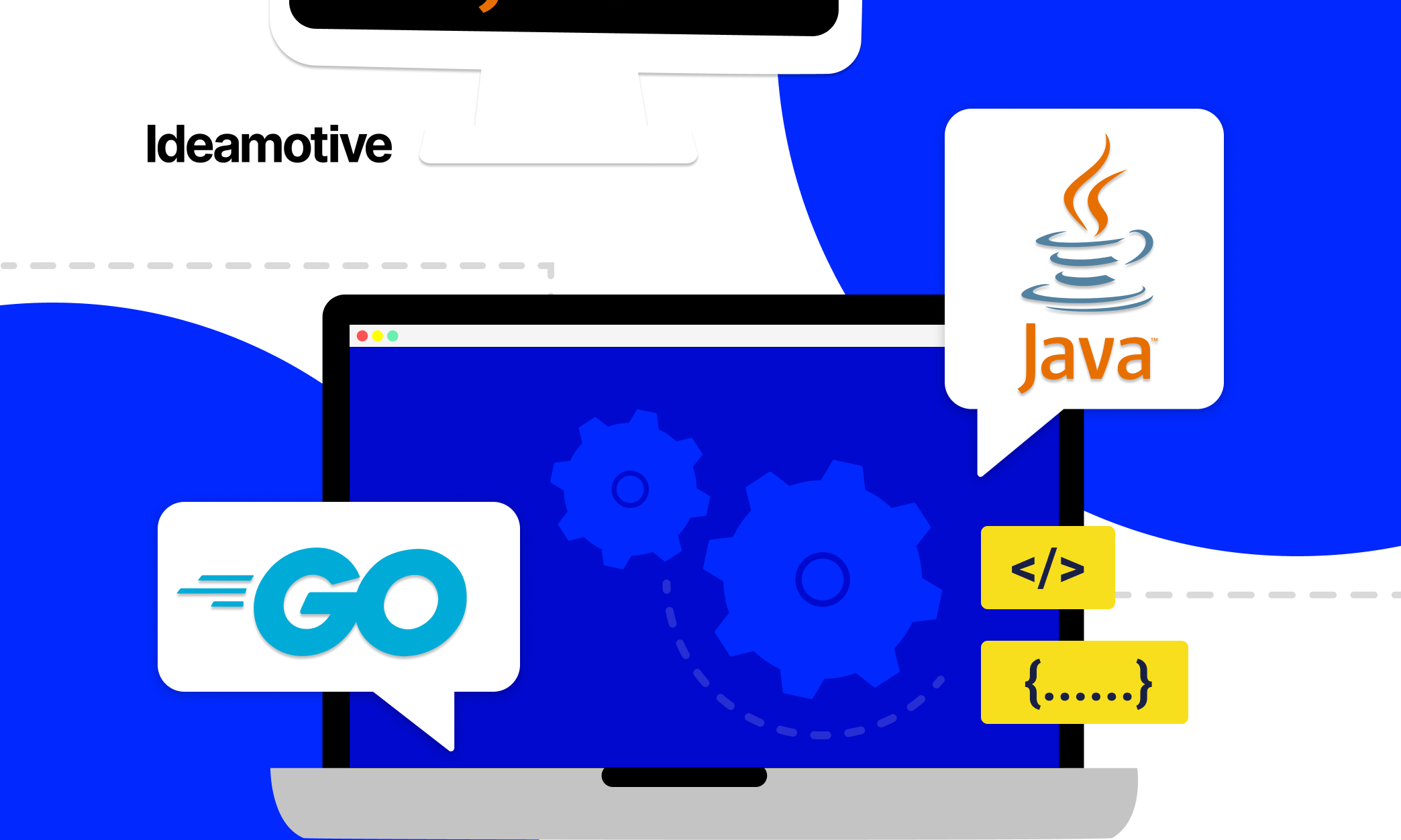
As of 2023, Java and Go have established their presence as globally recognized programming languages. Each has its own cadre of supporters and detractors, reflecting their diverse functionalities and use cases.
Both Go and Java are used all over the world and compete directly for control of server-side web applications. However, it also competes in other areas, such as the time spent learning a new language.
But how do these two rivals stack up against each other in the classic battle of old and new?
Want to see other comparisons? Take a look at Java vs Kotlin and React Native vs Swift, these couples deserve your attention.
That’s why we decided to make a comparison article to find out all the similarities, differences, and possible business applications of each side. Let's go over the basics of both and then compare Go vs Java.
What is Go?
Go, also known as Golang, is a programming language. Go is relatively young, patchy, and fresh. It is an open-source language from Google that debuted in 2011. Its creators are Robert Griesemer, Rob Pike, and Ken Thompson.
Go is a statically typed, compiled, multi-paradigm, and general-purpose programming language, just like its opponent. The language is free + open-source but developed and maintained by Google.
Ken Thompson is one of the main developers responsible for Go and is well known for his work on developing Unix operating systems.
Go's syntax is very similar to C. The compiler for the language was originally written in C, but now it is also written in Go, which allows the language to be maintained on its own.
Go as a language is designed for modern multi-core computers; it supports parallel programming. This means that it can run multiple processes at the same time. It also has lazy garbage collection, which manages memory to make your code run faster.
What is Java?
Java is old and has been around a while. It is statically typed, compiled (kind of), and generic.
The Java programming language was originally developed by James Gosling at Sun Microsystems and released back in 1995 as part of the Sun’s Java Platform.
Java is said to be the most widely used language of all time.
Java was once a popular language for server-side applications but has since lost that title.
Although not considered king anymore, it is still used all over the world with thousands of different applications.
But just because it is becoming popular for server-side applications doesn't mean that it is still out of date. It has been used on a wide variety of platforms: from old legacy software on servers to modern data science and machine learning applications.
Because it is so widespread, there are many ready-made modules and code that can already be used. This makes Java programming much easier because, most likely, the integration you are looking for is already done.
Java runs in a virtual machine, but this is its only real dependency. It's designed to boot anywhere you have computing power: from your microwave to server banks. It is a kind of compiled language in which a virtual machine breaks down the code into bytecode and then compiles it very quickly at runtime.
Java can also be interpreted - but only in the sense that at first it is still shortened to bytecode, and then that bytecode can be interpreted.
Why should we compare them?
At first glance, it seems that no comparison is needed as the differences are obvious. Java is older, object-oriented, has a large library and community. Go (or Golang) is a newer, multi-paradigm and has better concurrency support. Although Go is faster than Java, Java has more features and better support. Both are used for server-side programs.
However, when seen under the light of each comparison area, the obviousness disappears.
So, let's look at these two languages and compare them one topic at a time.
Go vs Java: Speed of Coding & Easiness of Coding
Java has been around since 1995. Apart from that, it is used on all devices. Because of this, there is a lot of source code available for reuse. As an added bonus, most of this Java code is open source, so you can copy, paste and use it. This greatly increases the speed at which you can develop functional applications in Java - provided there is existing code that matches what you are trying to accomplish.
However, this story comes at a price. Much of this vast library is outdated. A Java developer can develop for Java 1.8 and find exactly the module they want, but it's written in 1.3. They could have rewritten it to comply with the Java 1.8 standards, but that might take longer than writing new code. Also, the result may be inefficient anyway because this code was written based on an older standard.
Go doesn't have this problem. Its library is much smaller than that of Java, but all of this code works and is written in accordance with modern development standards. You don't need to go through the archives of old modules; it is built to today's standards and therefore has almost everything there is for it.
When it comes to typing and reading code, although both are based on C, they have many differences.
Go code is more compact and unforgiving. It is built on simplicity and scalability. It removes unnecessary parentheses but also leaves less room for errors. This means spending less time typing but (probably) more time debugging. Go is also not object-oriented like Java.
Java is more established and stable. It follows familiar object-oriented principles. This means that it is possible to have "reflection" where your code can look back at runtime to check for errors.
It's also technically possible in Go, but it's not easy to access or implement.
Verdict: Draw
Go vs Java: Performance
Talking about how fast Java vs Go starts up after typing them in, there is a clear favorite. For most tests, the Go runtime is slightly faster than Java.
Go is faster than Java in almost all tests. This has to do with the way it compiles: Go doesn't rely on a virtual machine to compile its code. It is compiled directly into a binary file.
In Sunny Radadiya's Java vs Go benchmark test, Go performed better than Java.
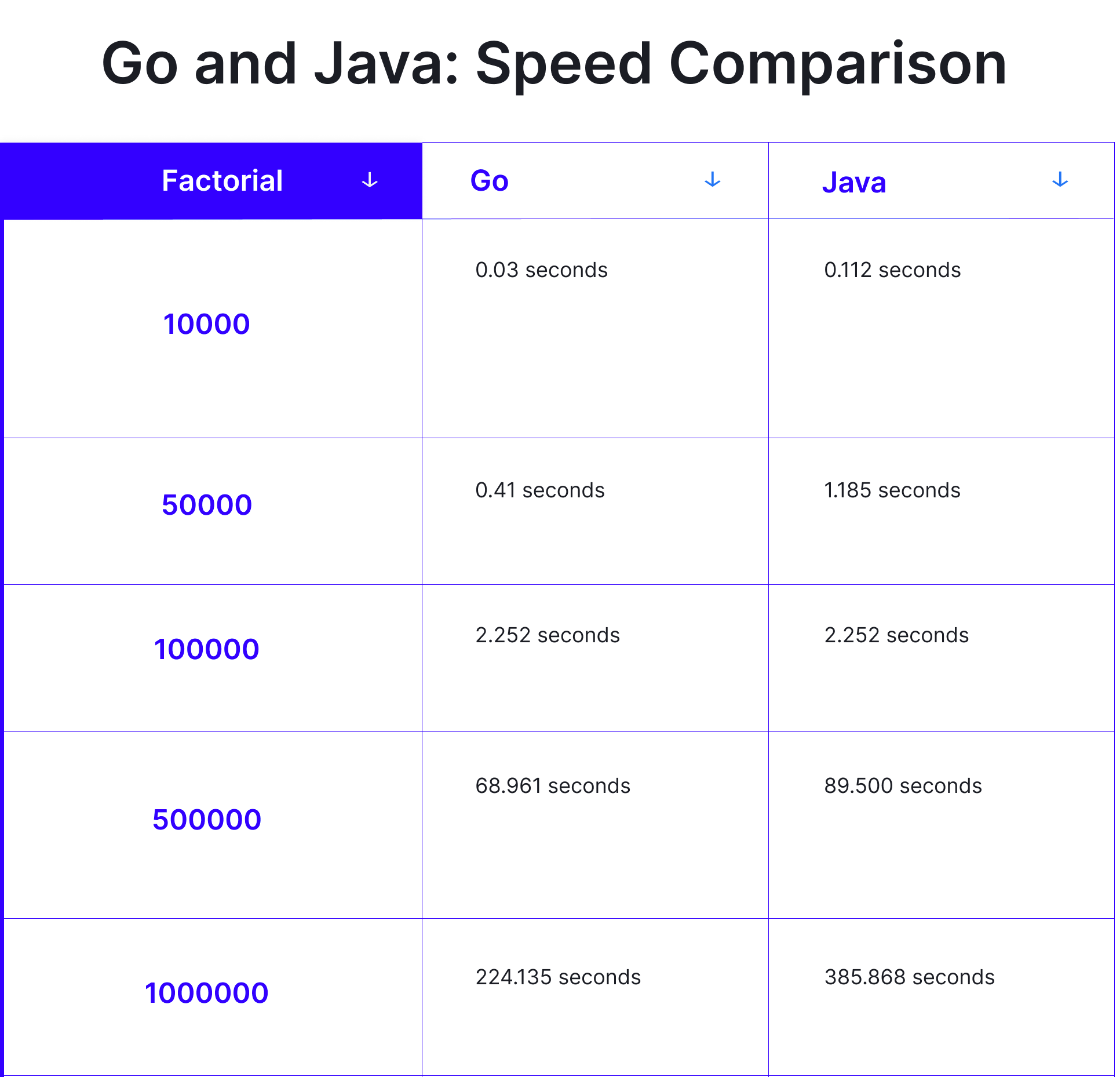
Here both languages had to print a bitmap of a Mandelbrot fractal - Go did it in 5.47 seconds, and Java did it in 6.83 seconds. These are not huge differences, but Go retains this slight edge in almost every direction.
Go tends to run faster compared to Java because it works like C. It compiles to machine code and then runs directly.
Java has a second step: it must be converted to bytecode by the Java VM before it can be compiled to machine code. While this is useful for a Java application, in these tests, it slows it down by a couple of seconds.
Since Go does not have a virtual machine, it is faster. But this virtual machine also helps Java run on other platforms.
Here is what Aliaksei Novikau, Senior Software Engineer at Spiral Scout, thinks about these facts:
Java is less platform dependent than Go because the latter requires you to generate a binary file every time you compile code for one platform.
Winner: Go
Go vs Java: Memory Usage
Another area that corresponds with the above one is the usage of memory. Undoubtedly, Go is good at managing memory. Instead of links, it contains pointers. It has garbage collection, which usually slows down code execution; however, Go's garbage collection is heavily optimized to prevent garbage collection pauses.
On the other hand, Java memory is managed by a virtual machine and has a more traditional garbage collector that runs from time to time. Both work well for memory optimization. However, Go's garbage collection method is slightly more refined and well designed.
Winner: Go
Go vs Java: Application
At the heart of Java is the idea of "write once, run anywhere." That's why it is so portable. The JVM interacts with the hardware, so the code (ideally) works in any application.
This is not 100% accurate, and in fact, running the same lines of code on any machine is more difficult than the adage "write once, run anywhere" implies. However, in essence, Java is still built on portability and is used everywhere, especially in user end devices such as ATMs. Additionally, Java is the default development language for Android mobile phones.
On the other hand, while Go is also designed for simplicity and scalability, Go's stellar feature is its superior multithreading. It can smoothly handle multiple parallel processes with its goroutines. It even has a special mode in which your code is run in binary - checking for run race situations. This built-in feature ensures that your code is concurrency safe.
Java also has multithreading capabilities, but these are not up to date with cutting-edge Go technologies. Java threads and synchronization primitives do their job, but not as efficiently as Go. It takes too much memory to create and destroy threads in Java, and on the server, every call to a website requires its own thread. Most servers can only handle about 1000 or maybe 10000 Java threads. With Go, those very servers can manage 100K or more goroutines.
Verdict: Draw
Go vs Java: Features
The Java community has been using this language for a long time. They often ask to add different functions to the language, and many of them found their response. So while it's not always perfect, Java probably has whatever feature you need that some Java programmer has developed somewhere in the process.
Go is designed to be simple, on the other hand. It is supposed to have fewer features as an intentional peculiarity. Go is meant to be read by everyone to use the same or similar code structure. So the next programmer could pick up where you left off. This may sound a bit limiting, but it leads to fewer headaches when developing as a team.
Verdict: Draw
Go vs Java: Popularity
Thanks to its ties to Sun Microsystems, Java was the most widely used server-side language. This is no longer the case, though, as Python's popularity grows. However, Java reigned supreme for quite some time, amassing a large community that continues to support it even today.
Turning to Google Trends, we can see that Go holds its level of popularity while Java is gradually losing it.
At the same time, it is clear that the number of search queries containing “Java” significantly outweighs its today’s opponent.
The StackShare data also lets us know that Java has more adherents than Golang.
Thus, we can assume that Java is a much more popular technology than Go, which brings several benefits (like developed community and other features) but is not the final word to choose this language.
Winner: Java
Go vs Java: Community
Java has been around for a long time. I know I say this all the time, but it really affects every aspect of the programming language. This is especially right when it comes to community. Java is well known and has a huge support system for thousands of developers. If someone has developed an Android application, then they know a little Java. Part of the appeal of this society is that it has many veterans. There are people who know Java both inside out and upside down because they have been using it for over 20 years.
This does not mean that there is no community at all in Golang. While the Java support base is made up of old-timers, there are upstarts with a new face in the Go community. Go is a new project, so the community is still very excited and active. So, while it may not compare to the legacy of Java, you can still find many Go resources such as open-source libraries, code examples, and other useful Go coders. So don't be scared to run into a problem without any solution - it's more than likely that someone has already considered or followed the path you are taking, solved, and documented your problem.

Winner: Java
Go vs Java: Talent Pool
The most useful resource here is Stack Overflow Developer Survey 2020. With the help of it, we can see the percentage share of every language web developers on the market.
40.2% of respondents use Java, which is the 5th best indicator in the ranking.
Go has 8.8% and takes the 12th position.
This means that Java’s pool of talents has one advantage - it’s much bigger. However, it is not the fact that you won’t find skilled Go developers. On the contrary, this number shows that this pool will be growing year-by-year while Java’s is gradually falling.
But, of course, we have to conclude that finding Java employees is much easier.
Winner: Java
Go vs Java: Easiness to Learn / Learning Curve
If this is your first time coding, Go is your best bet. If you just want to do something, and it just has to work for the sake of work, then Java might be the solution. If you are going to look at one or the other day in and day out, then it’s time to learn Go.
As we mentioned above, Go was designed to be simple and scalable, which means it is easier to learn.
It is a simple language, easy to learn, and designed for good readability. It has limited expansion options. It is assumed that this will avoid errors, errors, and problems during the program launch. The structure of the code is easy to understand, which means that anyone on your team can continue working.
Java provides you with many possibilities, and the developers experimented with various features that were later added to the language. Java has all the features you need. It also supports third-party tools for developer convenience.
Winner: Go
Go vs Java: Security
You may come across the opinion that Java is a safe language, but this is not entirely true. The language itself does not protect you from vulnerabilities, but some of its features can save you from common security flaws.
First, there are no pointers in Java compared to C. A pointer is an object that stores the memory address of another value. This value can cause unauthorized access to memory.
Second, it has a Security Manager - a security policy created for each application in which you can specify access rules. This allows Java applications to run in a sandbox without the risk of harm.
One of the main security features introduced in Golang is the checksum database. This database stores checksums, which are used to verify that the committed collection of Go module files has not changed. This feature builds trust and is the main reason why Go modules and version control in Go have become a hot topic.
Verdict: Draw
Go vs Java: Cost of Development
Again turning to the StackOverflow, it becomes clear that Go is entering the top 3 languages paying the highest salaries - $74k.
At the same time, Java starts the last 3 technologies list with an average salary of $50k.
So, it is obvious that developing with Go will cost you a fortune, but be sure these funds are well worth it. Just have a read of the summary table below and see why the service of Golang developers cost so much compared to the ones provided by Java Devs.
Winner: Java

Main Pros and Cons
Go pros
- Golang is fast
- Statically typed and can be compiled to machine code
- Simplicity of code
- Parallel programming
- Light streams of goroutines
- Smart standard library
- Garbage removal
- Built-in security
- Static analysis tools
- Cross-platform
Go cons
- No generics
- Not a system language
- Limited library support
- Implicit interfaces
Java pros
- Excellent documentation
- Widely used for web and Android
- Array of third party libraries
- Automatic memory management
- Multithreading
- Flexibility
- Test-Driven Development
- Compiled language
- Platform independence
- Excellent libraries
- High-level language with simple syntax
- Excellent toolbox
Java cons
- Bad garbage collection
- Bad performance
- The complexity of the code
- Complex inheritance
What is Go good for?
No language is suitable for every job, but some languages are suitable for more jobs than others.
Go is best suited for developing the following types of applications:
- Distributed network services. Web applications live and die of concurrency, and Go's built-in concurrency features - mostly goroutines and channels - are well-suited to the job. Hence, many Go projects are for networking, distributed functions, and cloud services: APIs, web servers, minimal frameworks for web applications, etc.
- Cloud development. Its concurrency and networking capabilities, as well as its high degree of mobility, make it suitable for building cloud applications. In fact, Go has been used to build several cornerstones of cloud computing, including Docker, Kubernetes, and Istio.
- Replacement of existing infrastructure. Much of the software we depend on for the infrastructure of the Internet is outdated and riddled with exploits. Rewriting things like this in Go brings many benefits - better memory safety, easier cross-platform deployment, and a cleaner codebase to support future maintenance. A new SSH server called Teleport and a new version of the Network Time Protocol are written in Go and offered as replacements for their traditional counterparts.
- Utilities and Standalone Tools. Go programs are compiled to binaries with minimal external dependencies. This makes them ideal for building utilities and other tools, as they are quick to launch and can be easily packaged for distribution.
What is Java good for?
Java can be found anywhere. It is the main language for Android development. You will find it in web applications, government websites, and big data technologies like Hadoop and Apache Storm. It is also a classic choice for scientific projects, especially for natural language processing.
Most organizations use Java in one way or another. The wide range of use cases makes these applications almost invisible, so the question "where to use Java" is often asked. To complete our overview, let's see which domains can be covered by Java:
- Android applications. Despite the explosive growth of Kotlin, Java is still the de facto language for Android applications, which automatically turns a large circle of Java developers into Android programmers. Although Android uses the Android SDK instead of the JDK, the code is still written in Java.
- Software products. Apart from the already mentioned Hadoop and Apache Storm, Java has been used to build Eclipse, OpenOffice, Gmail, Atlassian, and others.
- Financial programs. As one of the most sought-after language skills in the financial industry, Java is used both server-side and client-side to build reliable, fast, and simple websites. It is also the language of choice for modeling and data simulations.
- Point of sale systems. Many companies use Java to build PoS systems because they typically require platform independence and a large talent pool.
- Trading applications. Murex, a popular front and back connectivity bank management program, is written in Java.
- Big data programs. Hadoop is written in Java. Scala, Kafka, and Spark all use the JVM. In addition, Java gives you access to many proven libraries, debuggers, and monitoring tools.
Summary
Different tools are needed for different tasks.
Overall, both Java and Go are powerful, popular, and useful. But still, they have huge differences. Concerning Go vs Java for microservices, the first one is more acceptable here. If the service is complex with many database tables and numerous API endpoints, we believe that the performance gains from the richer Java language syntax and the abstraction of complexity by libraries such as JPA can be significant enough to justify the learning curve.
Whether you choose an exciting new Go or stick to a well-established Java legacy, it is entirely up to you and what you are trying to code.
In any case, Ideamotive is always here to come to the rescue. If you are not sure what technology to choose or which team of experts to hire - feel free to consult with us.
We will come up with technical consultancy and experts skilled in technology, matched with your product and industry.

Co-Founder of Ideamotive. Highly skilled in Ruby on Rails, JavaScript and Linux System Administration. Experienced in implementing effective web apps.
View all author postsTrending articles
21 Dazzling Examples of Mobile App UI Design to Inspire You in 2023
Michał Pruciak 7 min read
MedTech vs HealthTech vs BioTech: What Are The Differences?
Michał Pruciak 7 min read
10 Business Applications of Neural Network (With Examples!)
Michał Pruciak 4 min read
10 Irresistible Examples of Web Design Best Practices for 2023
Adam Kozłowski 7 min read
21 Amazing Examples Of React Web Development
Michał Pruciak 14 min read

Looking for a specific type of software development service?
Rated 4.8 / 5.0 by clients from various industries and locations.

